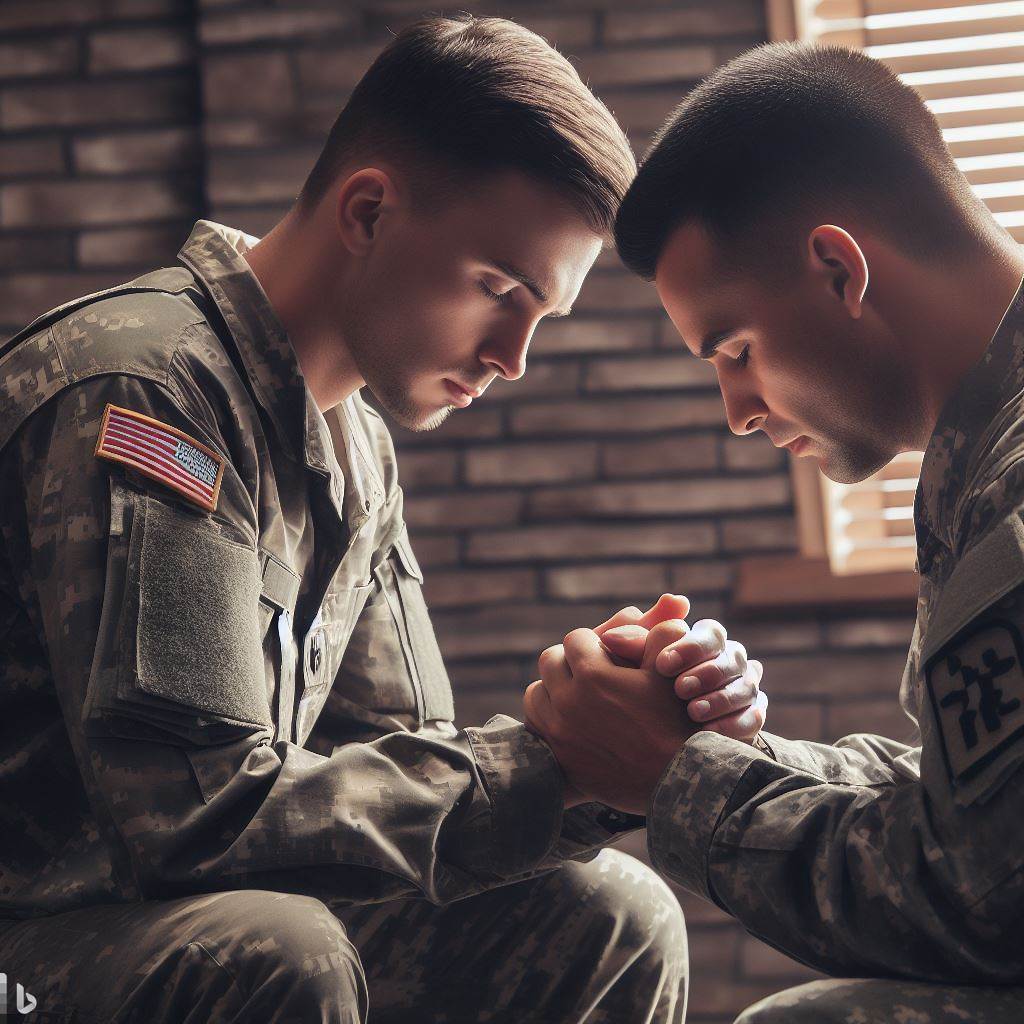Introduction
Brief overview of the topic
The U.S. military is comprised of diverse voices, including individuals from various ethnic minority backgrounds.
Importance of discussing ethnic minorities in the U.S. military
Understanding the representation and contributions of ethnic minorities in the military is crucial for promoting inclusivity and valuing diversity.
Thesis statement: Exploring the representation and contributions of ethnic minorities in the U.S. military sheds light on their invaluable role in the armed forces.
The U.S. military is an institution that represents the multicultural fabric of American society.
It is composed of individuals from various ethnic minority backgrounds, who have made important contributions to its history and success.
Recognizing and acknowledging their participation and achievements is essential for fostering unity and respect within the military and society as a whole.
Ethnic minorities have played significant roles in shaping the U.S. military since its inception.
African Americans, for example, have a long history of serving in the armed forces, from the American Revolutionary War to the present day.
Their dedication and bravery have earned them numerous accolades and recognition.
In addition to African Americans, other ethnic groups such as Hispanics, Asian Americans, and Native Americans have also made valuable contributions to the U.S. military.
These individuals have served in combat, intelligence, medical, and administrative roles, demonstrating their commitment and loyalty to their country.
Highlighting the representation and contributions of ethnic minorities in the military helps broaden our understanding of the diverse voices that make up our armed forces.
It challenges stereotypes and misconceptions, promoting a more inclusive and accepting society.
By recognizing and celebrating the accomplishments of these individuals, we honor their sacrifices and inspire future generations to pursue careers in the military.
Studying ethnic minorities’ role in the U.S. military builds unity, embraces diversity, and acknowledges their vital contribution to national defense.
It is essential that we continue to highlight their achievements and create an inclusive environment that values and respects the contributions of all service members.
Historical Perspective
Exploring Ethnic Minorities’ Contributions
- African Americans, integral to U.S. military history, showcased resilience and bravery from the Revolutionary War onward.
- Native Americans, valiant warriors, served as code talkers and contributed significantly in both World Wars.
- Asian Americans, overcoming adversity, played crucial roles, notably the 442nd Regimental Combat Team during World War II.
- Hispanic/Latino Americans, a diverse group, contributed honorably, highlighting their dedication to the nation’s defense.
Overcoming Challenges
- Ethnic minorities faced discrimination and segregation, enduring obstacles that hindered their full participation in military service.
- Limited opportunities for advancement persisted, constraining the potential for leadership roles and career progression.
Milestones in Diversity and Inclusion
- Significant strides were made with the desegregation of the military in 1948, a pivotal moment for equality.
- The establishment of affirmative action policies in the 1970s marked a commitment to fostering diversity and equal opportunities.
- The 21st century saw increased emphasis on diversity training, creating a more inclusive and supportive military environment.
In summary, understanding the historical engagement of ethnic minorities in the U.S. military unveils a narrative of resilience, sacrifice, and progress.
Acknowledging challenges and milestones is vital as we continue fostering a military that values and celebrates diversity.
Read: Networking Opportunities for Security Professionals in the USA
Diverse Voices in Today’s Military
Current Representation
Today’s U.S. military reflects diversity, with ethnic minorities contributing significantly to active-duty personnel.
Advancements in Recruitment and Retention
- Strategic outreach initiatives actively target ethnic minority communities, fostering inclusivity and expanding recruitment efforts.
- Robust diversity programs and policies promote an environment where all individuals can thrive and advance in their military careers.
Success Stories
- Notable individuals, such as General Colin Powell and Admiral Michelle Howard, exemplify excellence, breaking barriers in the military.
- Overcoming stereotypes, these heroes showcase resilience, talent, and dedication, inspiring the next generation of ethnic minority leaders.
In the contemporary U.S. military landscape, ethnic minorities play a pivotal role, contributing diverse perspectives and enriching the armed forces.
Through intentional recruitment efforts and inclusive policies, the military is actively shaping an environment that embraces the strengths of all its members.
Success stories of trailblazers underscore the transformative power of diversity, proving that barriers can be overcome, and stereotypes shattered, in the pursuit of excellence and service to the nation.
Read: Impact of COVID-19 on Security Guard Services in the United States
Contributions and Impact
Contributions of Ethnic Minorities
- Diverse communities enrich the U.S. military with unique skills, expertise, and a wealth of cultural perspectives.
- Cultural competency from ethnic minorities enhances international relations, fostering understanding crucial for global military engagements.
Impact on Decision-Making
- Ethnic minorities in decision-making roles bring innovation and creativity, injecting fresh perspectives into military strategies.
- Diverse voices strengthen overall effectiveness, ensuring missions are approached with a comprehensive understanding of varied perspectives.
In the U.S. military, ethnic minorities contribute significantly, their skills and cultural insights forming a vital part of the nation’s defense.
Beyond their individual roles, the impact of diverse voices resonates in decision-making, where innovation and comprehensive perspectives bolster the military’s effectiveness.
Recognizing and valuing these contributions is integral to creating a military force that not only reflects the diversity of the nation but also draws strength from it.
Read: Physical Fitness Standards and Tips for U.S. Security Guards

Gain More Insights: Public vs. Private Detectives: Key Differences Explained
Learn More: Fire Prevention and Community Outreach in the U.S.
Ongoing Challenges and Opportunities
Identifying the persistent challenges faced by ethnic minorities in the military
Ethnic minorities in the U.S. military continue to face persistent challenges that hinder their full participation and advancement within the armed forces.
These challenges include discrimination and bias, as well as glass ceilings that limit their opportunities for leadership positions.
Discrimination and bias
Ethnic minority service members often encounter discriminatory treatment based on their race, ethnicity, or cultural background.
They may face prejudice or unequal treatment in areas such as promotions, assignments, and disciplinary actions.
These experiences can negatively impact their morale, sense of belonging, and overall career advancement.
Glass ceilings and limited leadership representation
Despite the growing diversity within the military, ethnic minorities still face barriers to reaching senior leadership positions.
Limited representation at the top echelons of command can perpetuate inequality, reinforce stereotypes, and impede progress towards a more inclusive armed forces.
Transform Your Career Today
Unlock a personalized career strategy that drives real results. Get tailored advice and a roadmap designed just for you.
Start NowSteps taken to address these challenges
- Diversity training and sensitivity programs.
- Mentorship and support networks.
To address these ongoing challenges, various steps have been taken to promote diversity and create a more inclusive environment within the military.
Diversity training and sensitivity programs
The military has implemented diversity training programs aimed at raising awareness and fostering inclusivity.
These initiatives educate service members about the importance of diversity, cultural sensitivity, and the detrimental effects of discrimination.
By promoting understanding and respect, these programs aim to reduce biases and create a more inclusive environment for ethnic minority personnel.
Mentorship and support networks
The military has recognized the value of mentorship and support networks in promoting the advancement of ethnic minority service members.
Mentoring programs connect junior personnel with experienced leaders who provide guidance, advice, and support.
These relationships help minority service members navigate the challenges they may face and empower them to reach their full potential within the military.
While progress has been made, it is important to recognize that there is still much work to be done. Continued actions are crucial to further promote diversity and inclusivity within the U.S. military.
Recognizing the potential for further progress and the importance of continued actions
- Discrimination and bias.
- Glass ceilings and limited leadership representation.
The potential for further progress lies in strengthening existing initiatives and developing new strategies to address the challenges faced by ethnic minorities.
It requires ongoing commitment from leadership at all levels, as well as a comprehensive evaluation of policies and practices to eliminate biases and structural barriers.
Moreover, it is vital to prioritize diversity and inclusion as fundamental values within the military.
By fostering an environment that values and celebrates differences, the armed forces can fully harness the talents and contributions of all its personnel, regardless of their ethnic background.
Essentially, the ongoing challenges faced by ethnic minorities in the U.S. military, including discrimination, limited leadership representation, and glass ceilings, require concerted efforts to address.
Through diversity training, mentorship programs, and a continued commitment to progress, the armed forces can create a more inclusive environment that values and embraces diversity.
It is only through these actions that the military can ensure equal opportunities for all its personnel to thrive and contribute to the nation’s defense.
Read: Veterans Transitioning to Security Roles: A Guide for the U.S. Market
Conclusion
Recap of the main points discussed
In this section, we explored the importance of diverse voices in the U.S. military. We highlighted the contributions ethnic minorities make to our armed forces and the unique perspectives they bring.
Reiterating the significance of diverse voices in the military
Diverse voices in the military enrich our strategic thinking, decision-making, and problem-solving abilities.
By including ethnic minorities, we create a more inclusive and representative military that reflects the diversity of our nation.
Call to action for greater inclusion and appreciation of ethnic minorities’ contributions
It is essential that we actively work towards creating a military that values and appreciates the contributions of ethnic minorities.
This can be achieved by providing equal opportunities for career advancement, ensuring cultural sensitivity training, and fostering an environment of respect and understanding.
By embracing diverse voices, we strengthen our military and enhance our national security.
It is incumbent upon all of us to actively promote inclusion, encourage diversity, and recognize the valuable contributions of ethnic minorities in the U.S. military.
To summarize, let us strive for a military that truly represents the rich tapestry of America, where every voice is heard and every contribution is valued.
Together, we can create a force that is stronger, more effective, and united in its commitment to protect our nation and defend our values.




